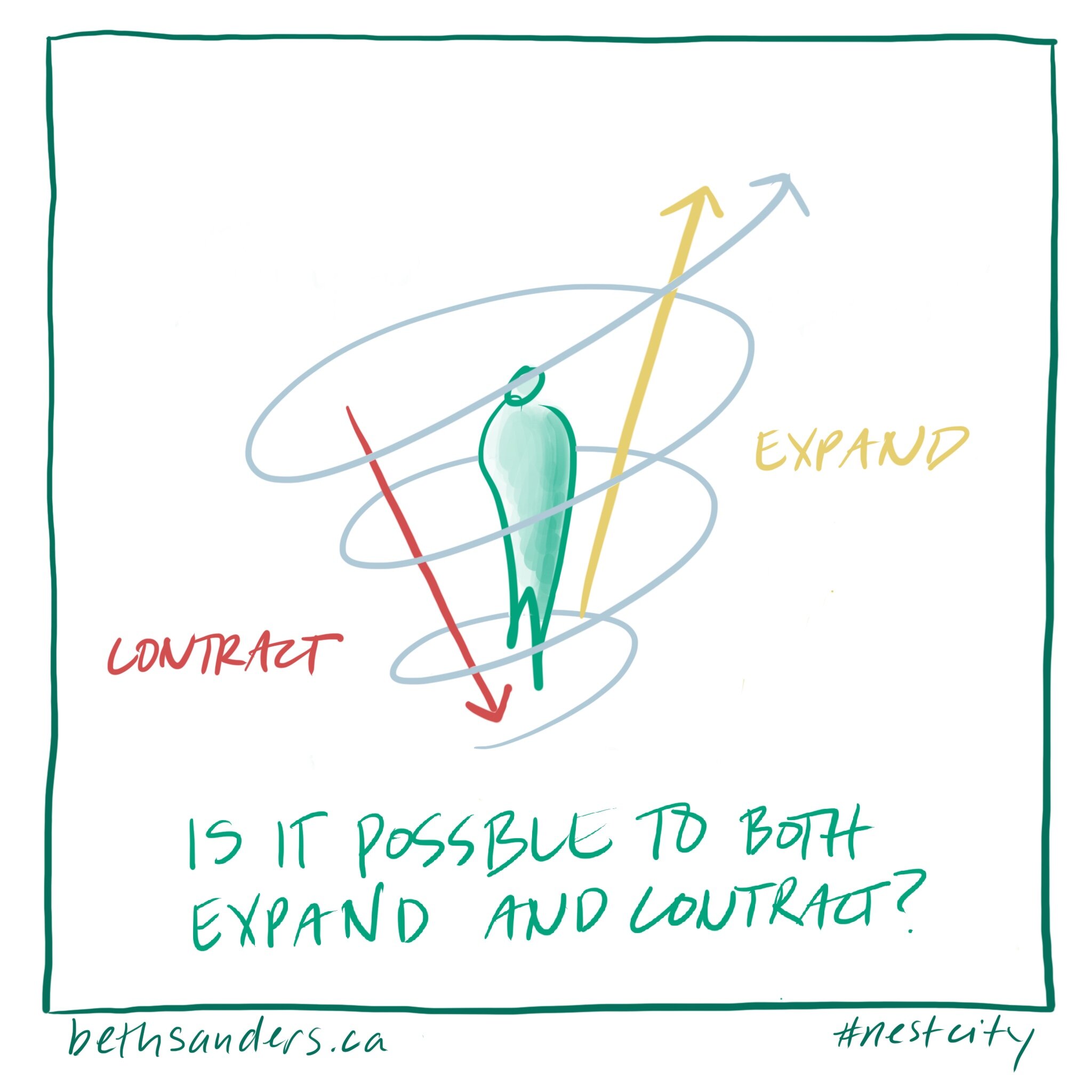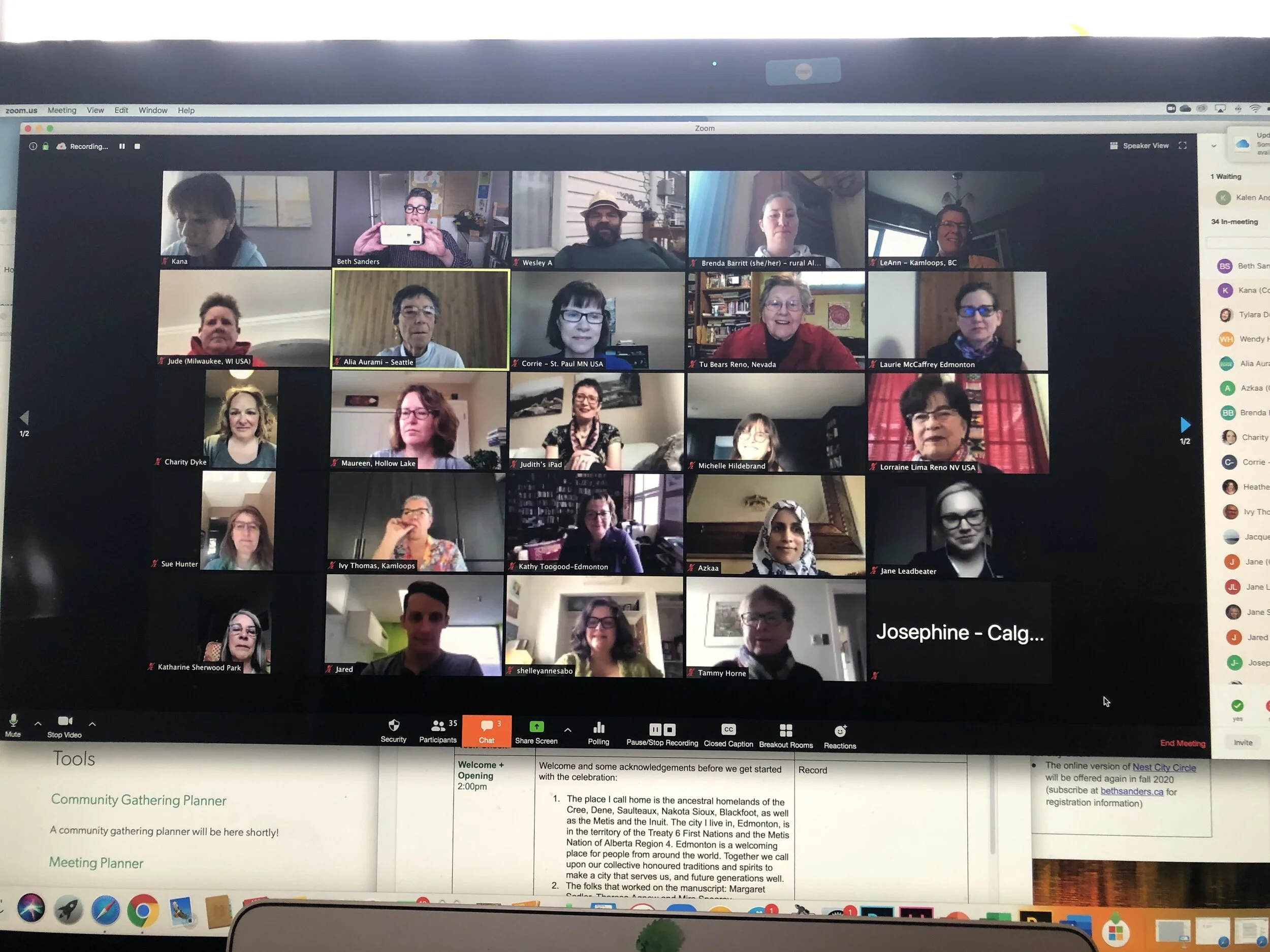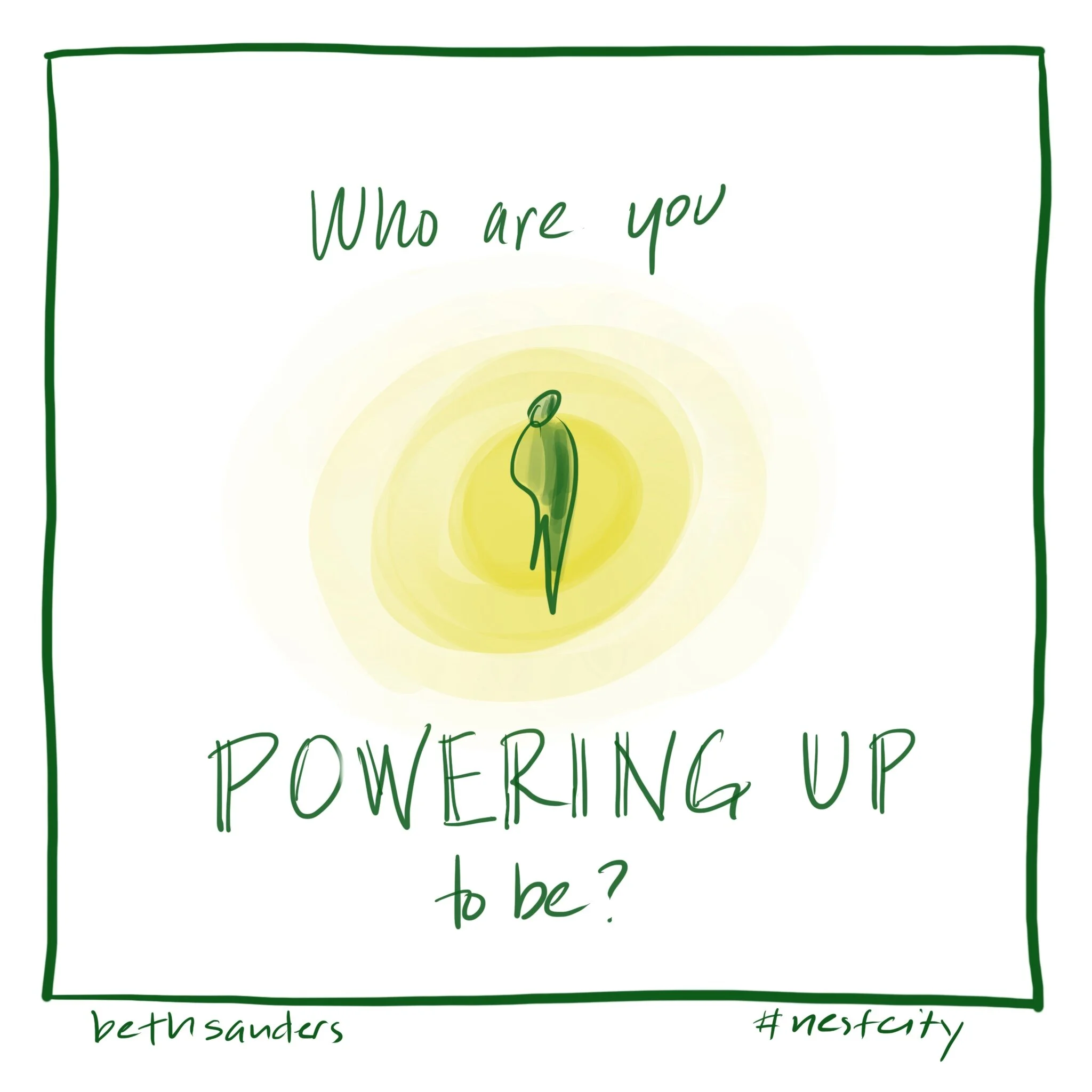There is another rising curve that demand us to choose collapse or hardship: the rise in global temperature. This time the collapse that threatens is not our healthcare system, but our life support system. The good news: the required new work will help with the economic hardship that has come with the pandemic.
Read MoreOur economic world is upside down. The third stark truth is that adaptation is a survival skill. If we insist on behaving “as usual” collapse is the result. If we adapt our behaviour, healthcare practices, business practices, care-giving practices, we choose hardship. And hardship also requires adaptation. We need to live our lives differently.
Read MoreConsider that innovation is simply new work, and the constant regeneration of new work is how we adapt to our changing world. If our work stayed the same, our species would not have travelled and settled across the planet. New work--innovation--allows us to evolve. The habitats we build for ourselves have evolved with us, for they are the result of our work.
Read MoreIt is reasonable to expect that feelings can be talked about and explored in a personal relationship. It is reasonable to expect that drivers can happily go on their way when no accidents happen. There is something out of proportion, and deeply unfortunate, in the behaviour of the gaslighter and the angry old white man.
Read MoreThere is a strong pull within us to move back to normal, to business as was usual. Opening businesses, ceasing our physical distancing practices too early is collapse behaviour. Wanting something to be as it was in insufficient to make it so; feedback loops are life or death right now and we ignore them at our peril.
Read MoreWe have two options to choose from: collapse or hardship. For valid life or death reasons, we have chosen the latter. We have chosen the hardship of physical distancing, and the hardship of tough economic conditions to avoid the collapse of our healthcare systems. In the process, new ways of thinking, making and doing are enabling us to handle the situation as best we can.
Read More“Let this book take you by the hand. You will be nourished, informed, and shown the patterns that influence self, others, city, and the power of compassion like a caring mentor who would support your whole person to blossom.”
Read MoreAs a species we are experiencing and watching our transformation in real time. Two questions guide me into possibility: What is the quality of life I/we wish to have?Under what conditions do I/we respond responsibly?
Read MoreI’ve long been struggling with how we can gather in ways that are socially proximate. When we gather at conferences, for example, we are physically close, but socially separate as we sit and listen to the expert sage on the stage. I’ve had what I call “a keynote itch” that needs to be scratched. And it will work both face-to-face and online. I call it Street Corner Visiting.
Read MoreI’ve long been uncomfortable with keynote speakers who fly in, speak for an hour or so, and then fly out. This format of information delivery is a download, often without confirming the download is the right download, let alone if the download is complete and meets the needs of the audience.
Read MoreIt was a tense part of the meeting, when the neighbours were challenging city staff about who the city was going to invite to an upcoming meeting. It was one of those moments when I’m quietly telling myself: this is tricky, so make sure you say the right thing or this is going to go off the rails!
Read MoreMonday was a big birthday. For the last few months of my 40s I’ve been thinking about all the people I’ve known over the years who power down in their 50s. I will be powering up. I’m only getting started.
Read MoreAt a conference where the crowd assembled believes in designing cities to mitigate and adapt to climate change, we avoided talking about the heat—the emotional heat. And avoiding emotional heat means avoiding the hard work needed to effect the changes we say we want.
Read MoreHe was a conference speaker with an urgent message: we must change our ways or we will die. We will only save ourselves if we do what he says, what he prescribes.
Read MoreMy two kids are great at metaphors. The latest: that they are buying a car “with training wheels”. Whether it is kids, co-workers, students, anyone for whom we serve as training wheels, this experience has taught me a few vital things about my relationship with the sovereignty of people making decisions, whether they are my kids, clients, friends (or myself!):
Read More














